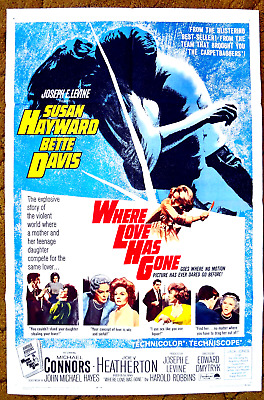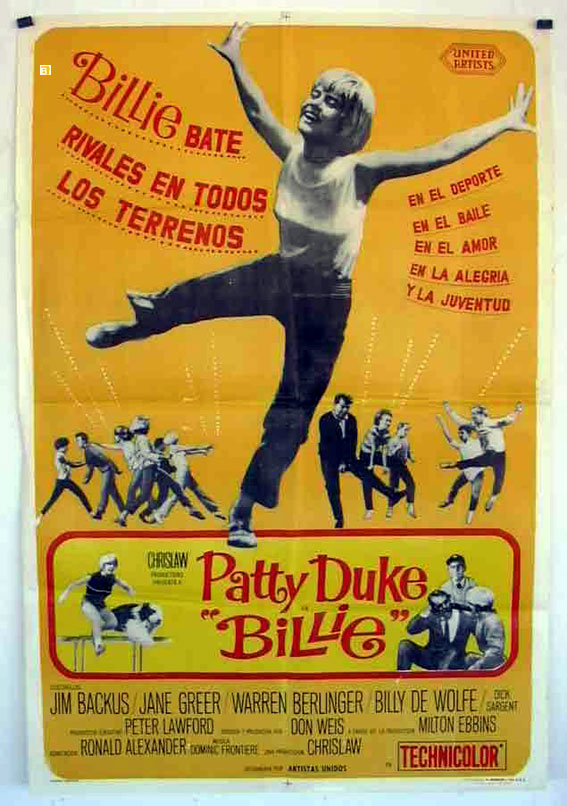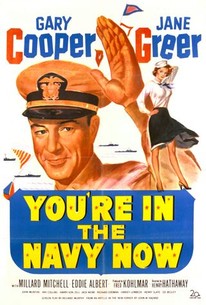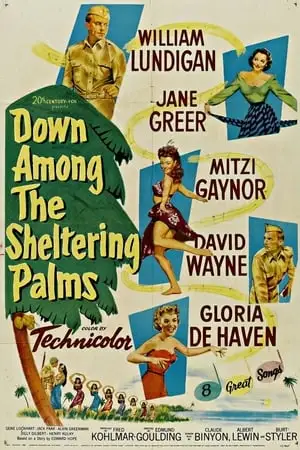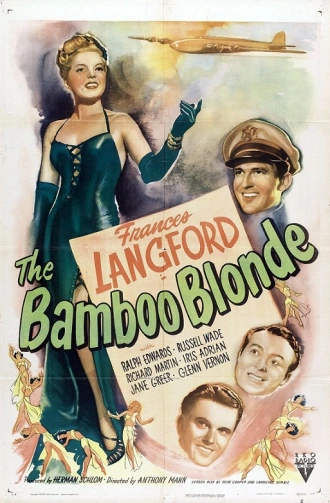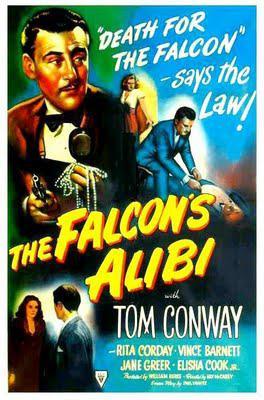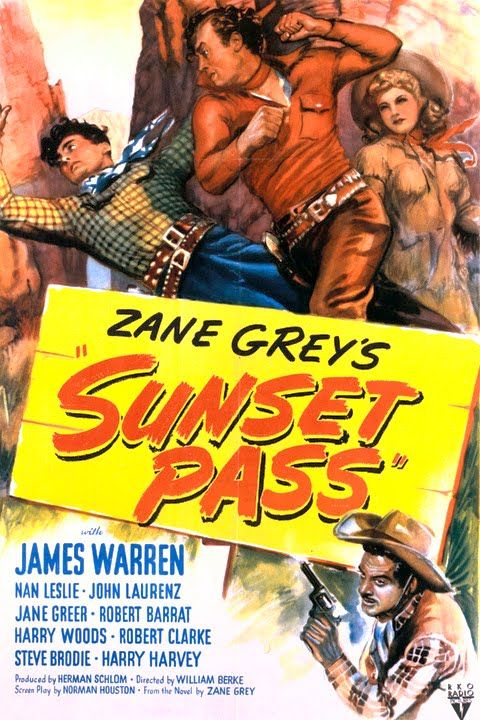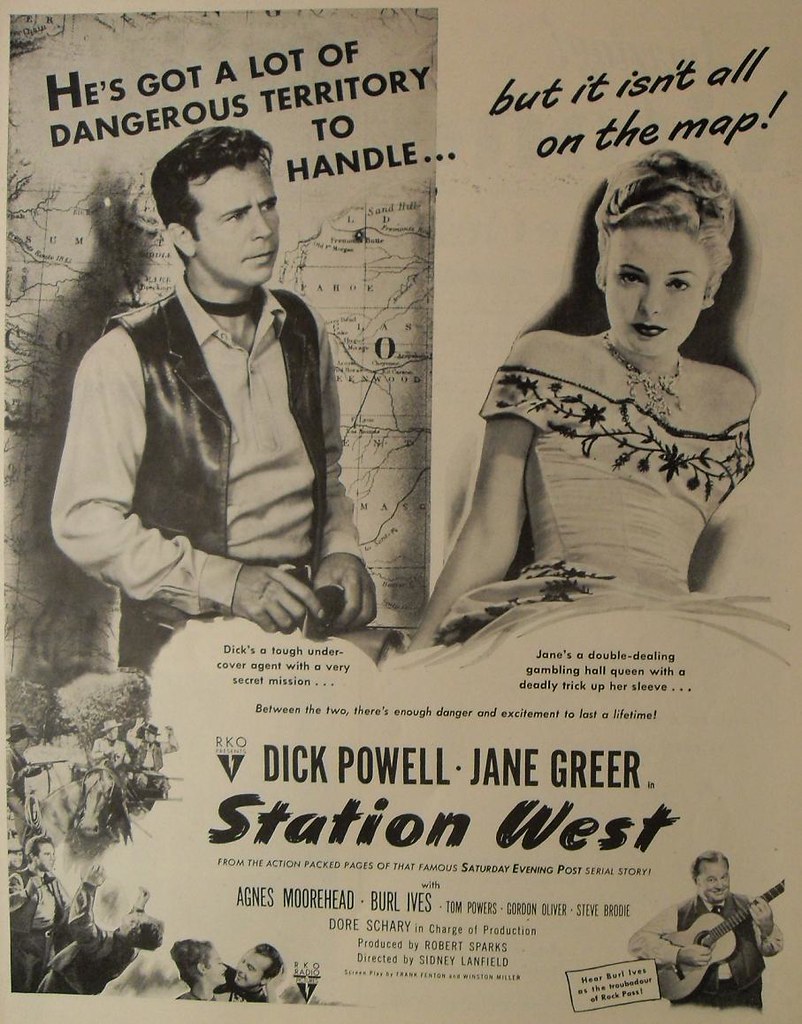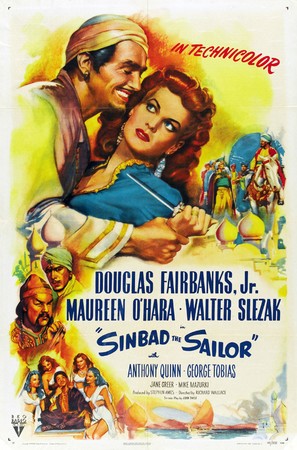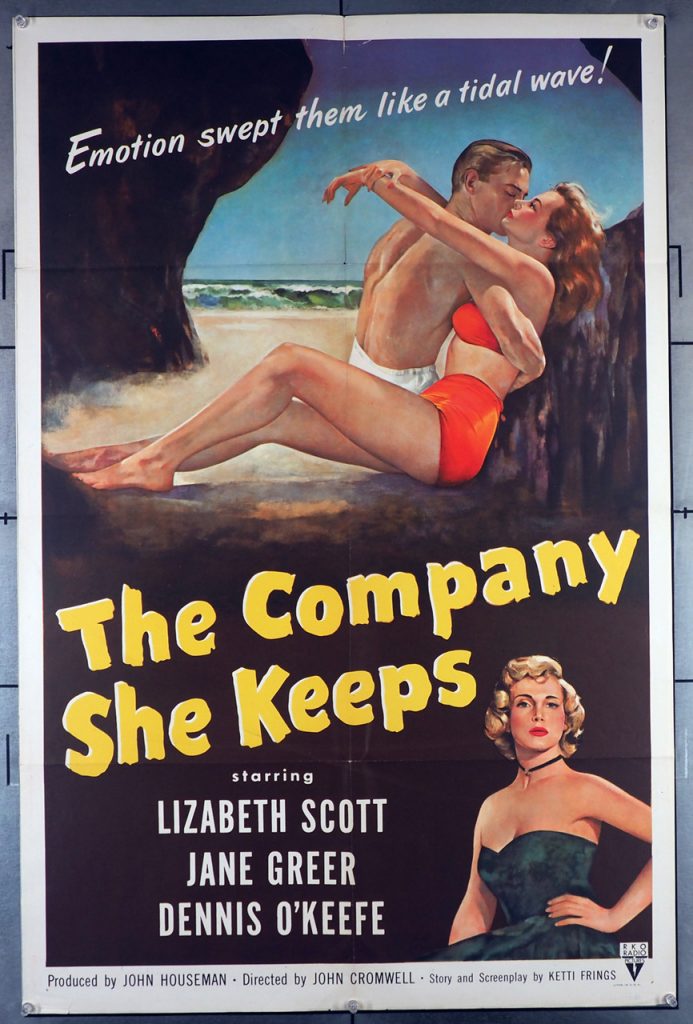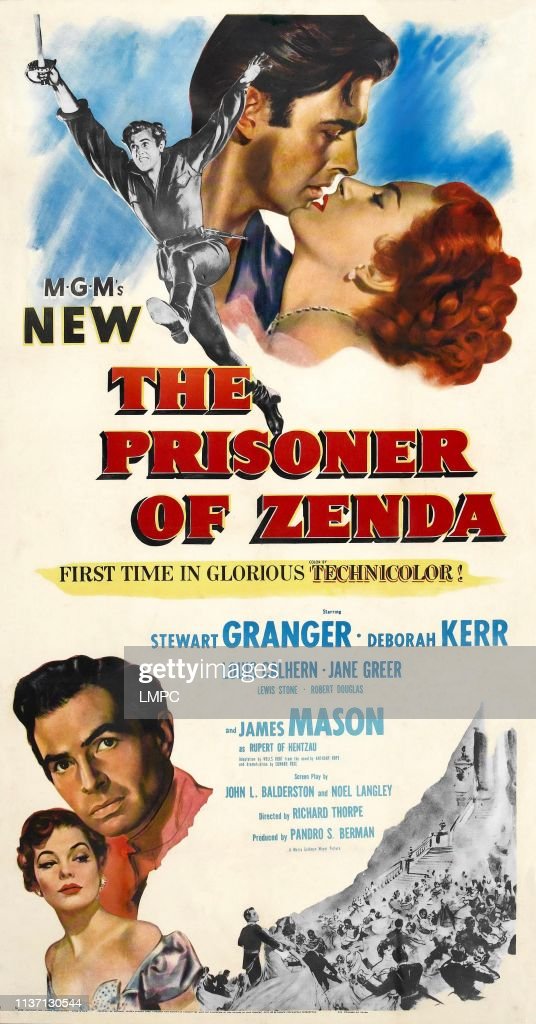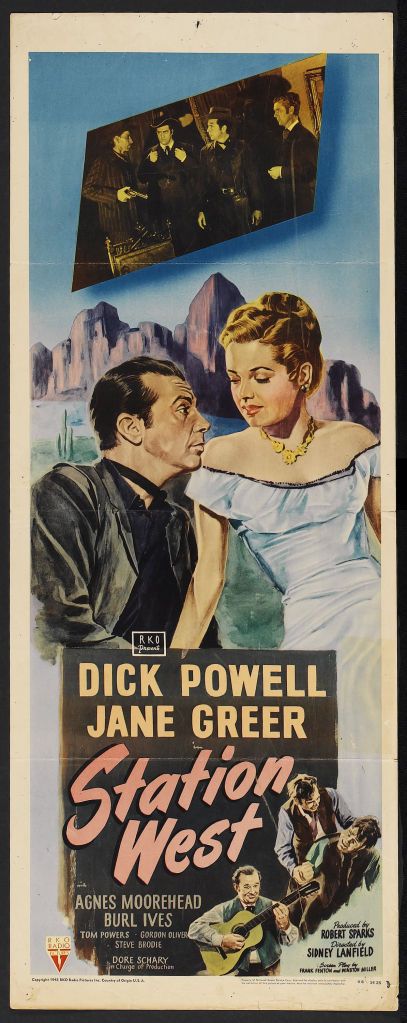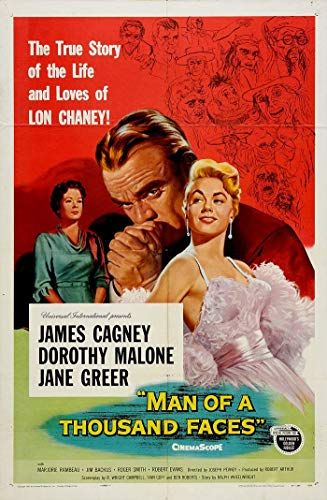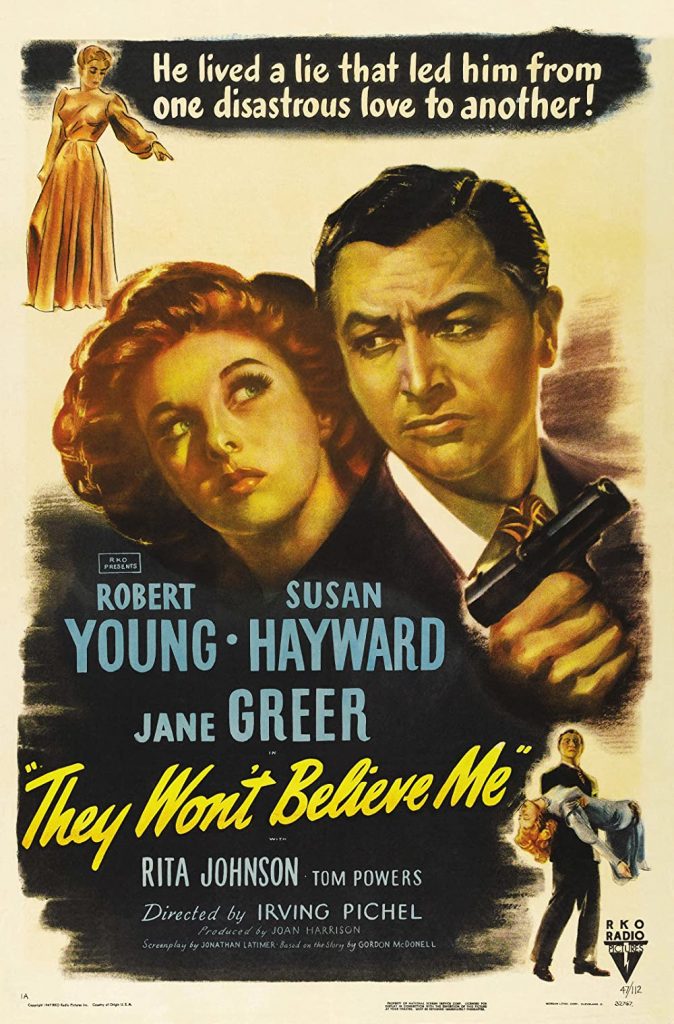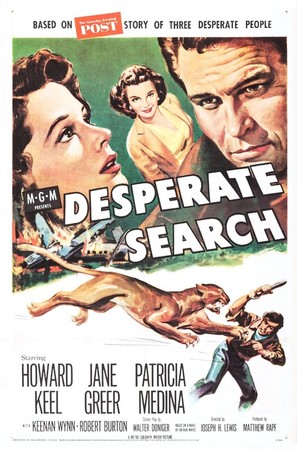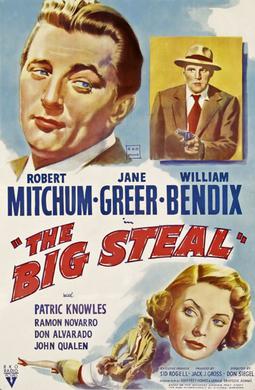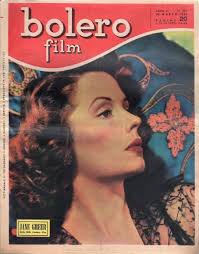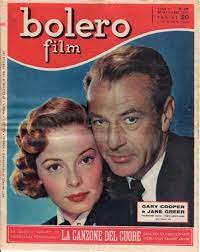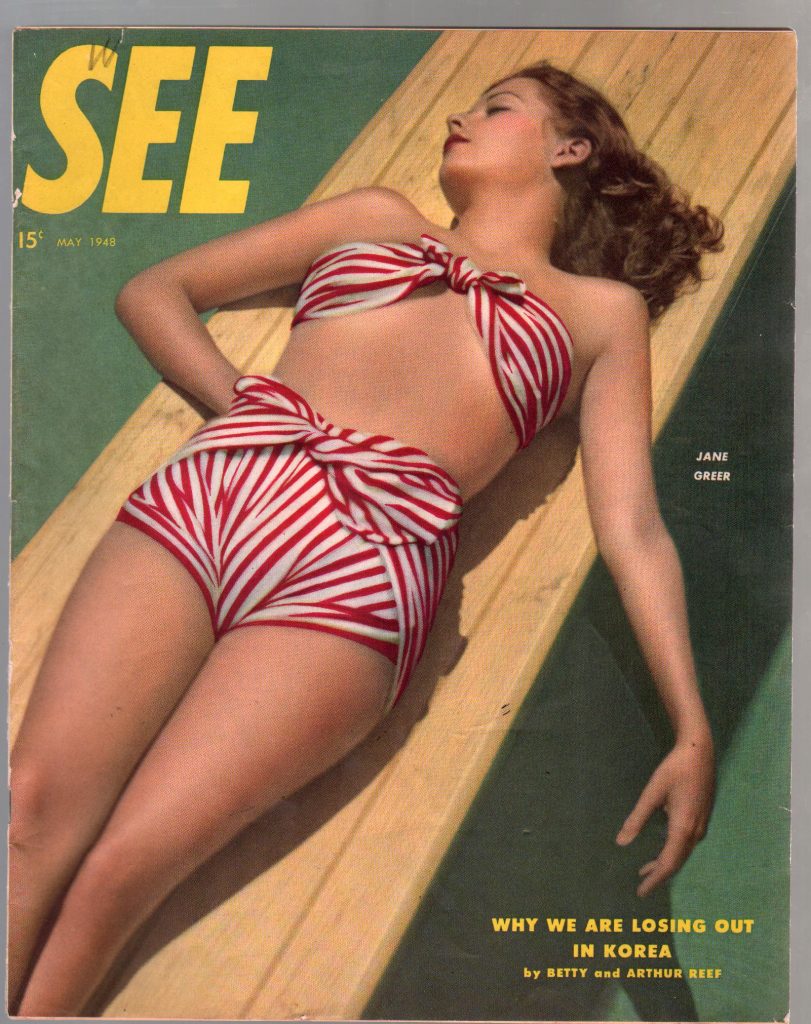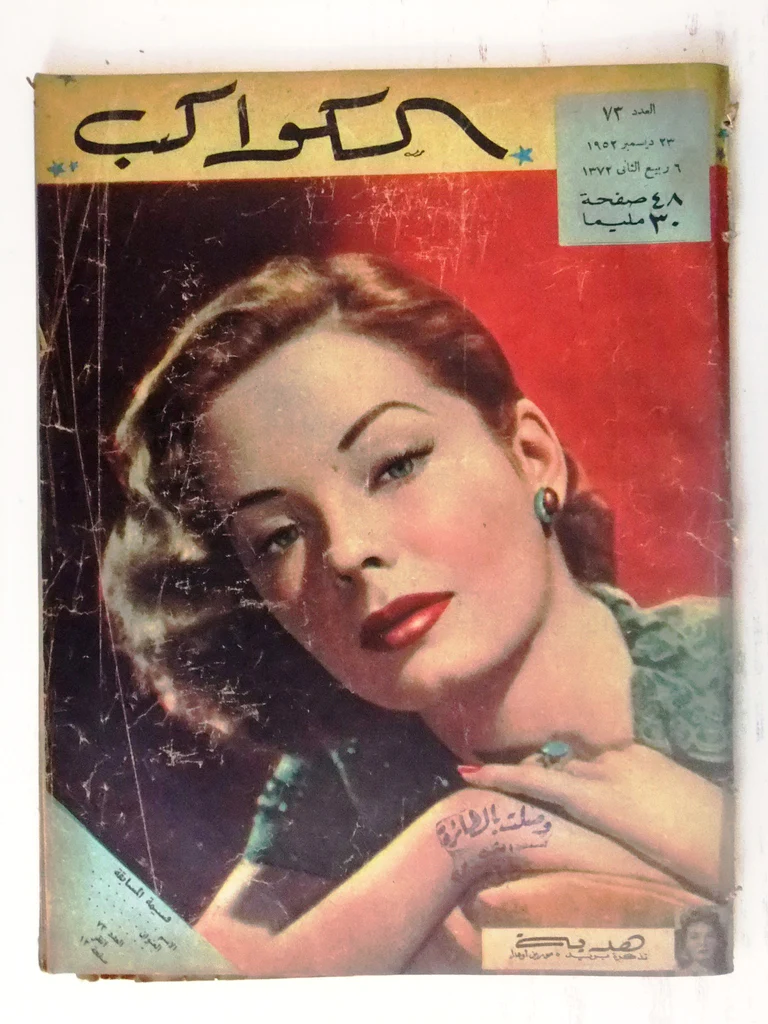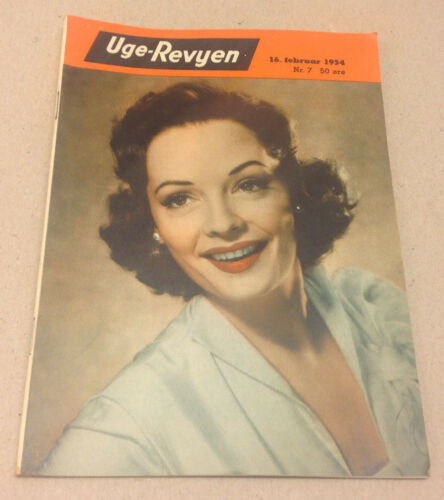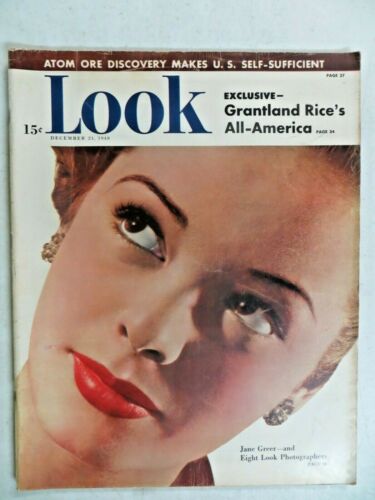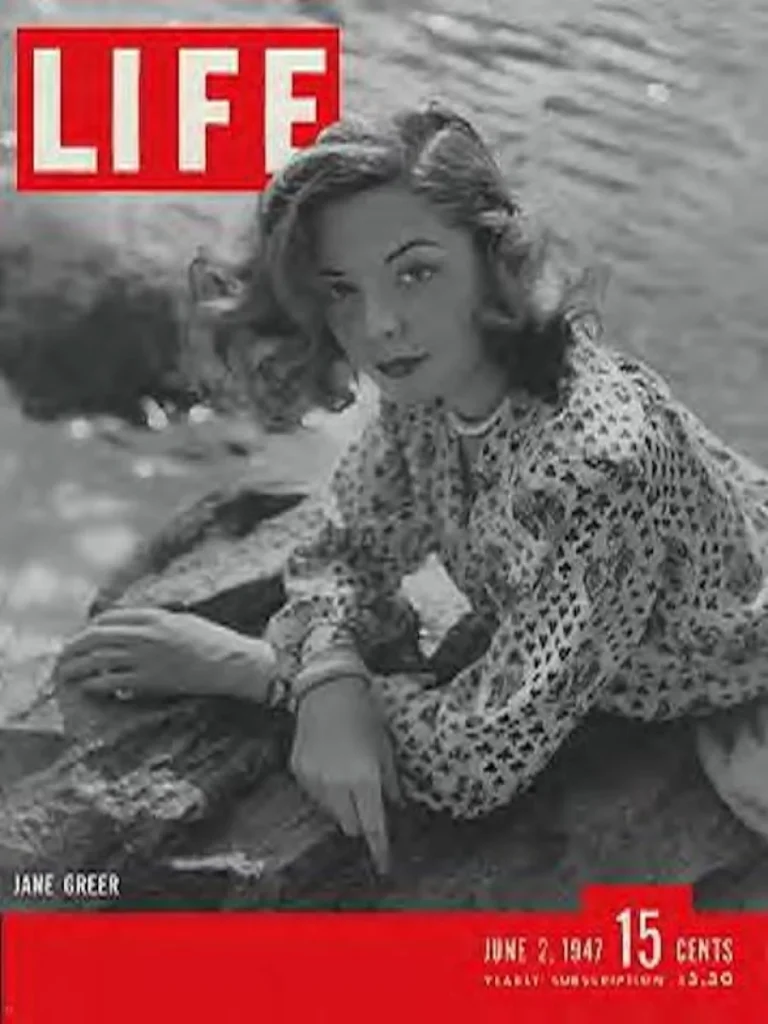
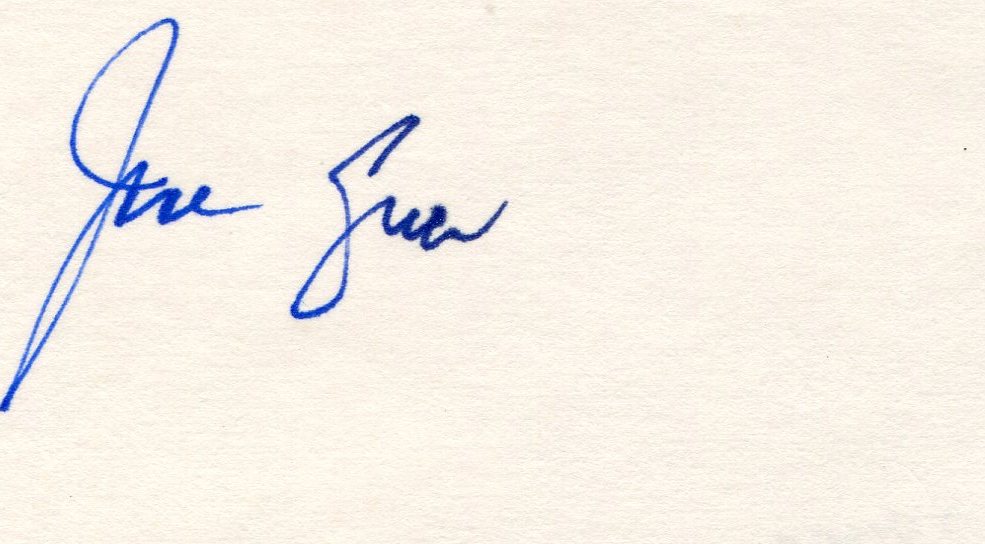
Jane Greer was one of the best of femme fatales. She was born in 1924 in Washington D.C. She made her movie debit in “Pan-Americana” in 1924. She was splendid opposite Robert Mitchum in “Out of the Past” in 1947 and “The Big Steal” in 1949. Her other films include “Down Among the Sheltering Palms” and “Man of A Thousand Faces”. She died in 2001.
Ronald Bergan’s obituary in “The Independent”:
Howard Hughes, the eccentric billionaire, could make and break any actress’s career on a whim and often did. In 1943, when Hughes saw a reproduction of a second world war recruitment poster in Life magazine of the petite, almond-eyed, 18-year-old Bettejane Greer, posing in a smart new WAC uniform, he told one of his acolytes to “find this girl as soon as possible and sign her up.” Jane Greer, who has died aged 76, was whisked by Hughes from Washington DC, where she was born, to Los Angeles, and although she eventually became one of the leading actresses in film noir , she had to wait two years to appear on screen.
Her mother, who wrote children’s stories and traced her family back to the poet John Donne, worked in the US war department’s public information office and got her daughter the job modelling the uniform. And it was her mother who accompanied the young Bettejane to Los Angeles. Even so Hughes managed to keep Greer under a kind of house arrest for five months. “Hughes was obsessed with me,” she said many years later. “But at first it seemed as if he were offering me a superb career opportunity.”
As soon as she could manage to evade Hughes and his spies, Greer met Rudy Vallee, the former crooner turned comic supporting actor, and they married a few weeks later. Hughes was enraged and warned her that unless she divorced Vallee, he would drop her. He had signed her to a seven-year contract, but failed to find any roles for her. Frustrated, Greer managed to get out of her contract and join RKO.
However, Hughes continued to pressure Greer and, as a result, her marriage suffered. Soon after her divorce from Vallee in 1944, Greer moved in with Hughes as his lover. At first, RKO gave her bit parts as show girls in three films under her real name of Bettejane Greer. She had taken part in many beauty and talent contests as a child, and began modelling professionally at the age of 12. She dropped out of her senior year at high school to work as a vocalist with a nightclub band, though she only had a chance to sing in her first few films. One of these was The Falcon’s Alibi (1946), in which Greer played a lively band singer who is murdered by crazed disc jockey Elisha Cook Jr. Her first decent role was as one of the three women betrayed by murderous cad Robert Young in They Won’t Believe Me (1947). Chic in a wardrobe of trim suits and hats, she coolly seeks her revenge. In the same year, she came into her own as one of the great two-timing dames in Jacques Tourneur’s superb film noir Out of The Past, a part that was enough to make her one of the icons of the genre.
As the femme fatale who coldly seduces Robert Mitchum in his first starring role, Greer changes character expertly to suit her particular needs, remote one moment, charming the next. “I had never read a part like that,” Greer recalled. “All through the picture they talk about you, so that by the time you come on screen, everyone thinks you’re going to be nine feet tall.”
Of Tourneur, she commented, “He did not tell his actors very much. He said to me, ‘First half of picture, Good Girl. Last half of picture, Bad Girl. No big eyes’.”
She followed this by playing a tough but beautiful gambling house owner in Station West (1948) responsible for the killing of two soldiers. Naturally, Dick Powell, who is on her trail, falls for her before bringing about her demise.
Despite the fact that Greer was now married to an attorney, Edward Lasker, Hughes, in a noirish twist of fate, had just bought RKO, and was still interested in her romantically. When Greer resisted him, Hughes barked out, “As long as I own the studio, you won’t work.” However, he relented and cast her to co-star once again with Mitchum, this time in Don Siegel’s fast-paced The Big Steal (1949).
Greer’s last film for RKO was The Company She Keeps (1950). In it, she was a deceitful ex-con, making a play for the boyfriend of her parole officer (Lizabeth Scott). In one scene, the baby in her arms is Jeff Bridges, making his screen debut.
Thereafter, Greer never again had the chance to use her sassy, sensual charms to full advantage. At MGM, there was not much to get her teeth into, except as the plotting Antoinette de Mauban in the Technicolor remake of The Prisoner Of Zenda (1952), though she was billed sixth.
In 1953, Greer retired to raise her family of three boys, all of them later taking up careers in the movie and music industries. Subsequently, she made only sporadic appearances on screen: in John Boulting’s sluggish Run for the Sun (1956), with Richard Widmark and Trevor Howard, and as the second wife of Lon Chaney (James Cagney) in Man Of A Thousand Faces (1957).
In 1964, she joined two other aging drama queens, Susan Hayward and Bette Davis, in the soap operatics of Where Love Has Gone in which she played a sympathetic probation officer. One of her last appearances was in Against All Odds (1984), a remake of Out of the Past, Greer’s best film. She was given the small part, not in the original, of Rachel Ward’s mother, only as a reminder to cinephiles of the great days of the 1940s when Jane Greer entered the film noir hall of fame.
She is survived by her sons.
Jane Greer, actor, born September 9 1924; died August 24 2001
The above “Guardian” obituary can also be accessed online here.
